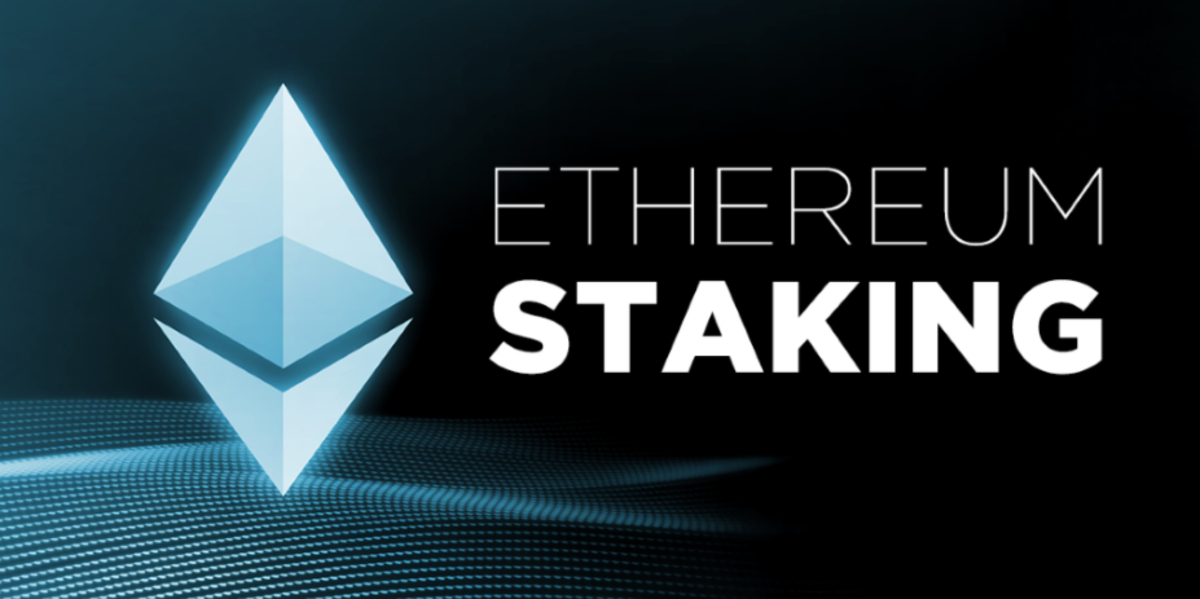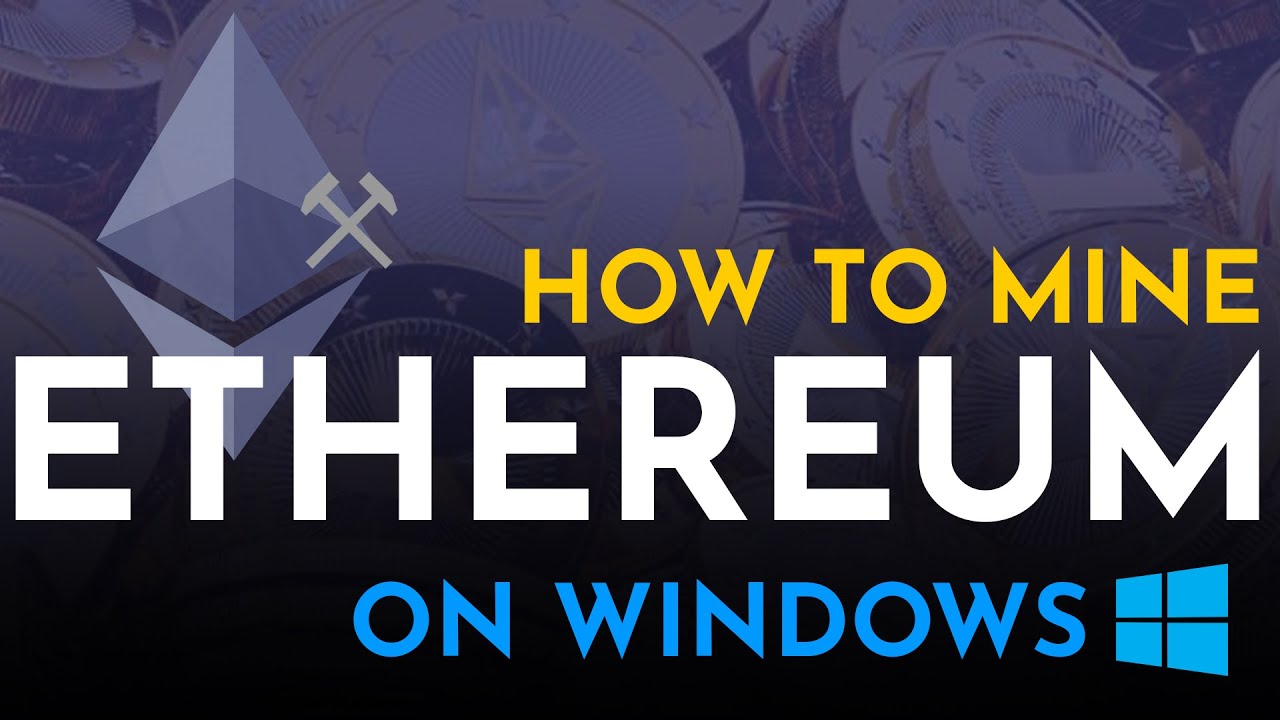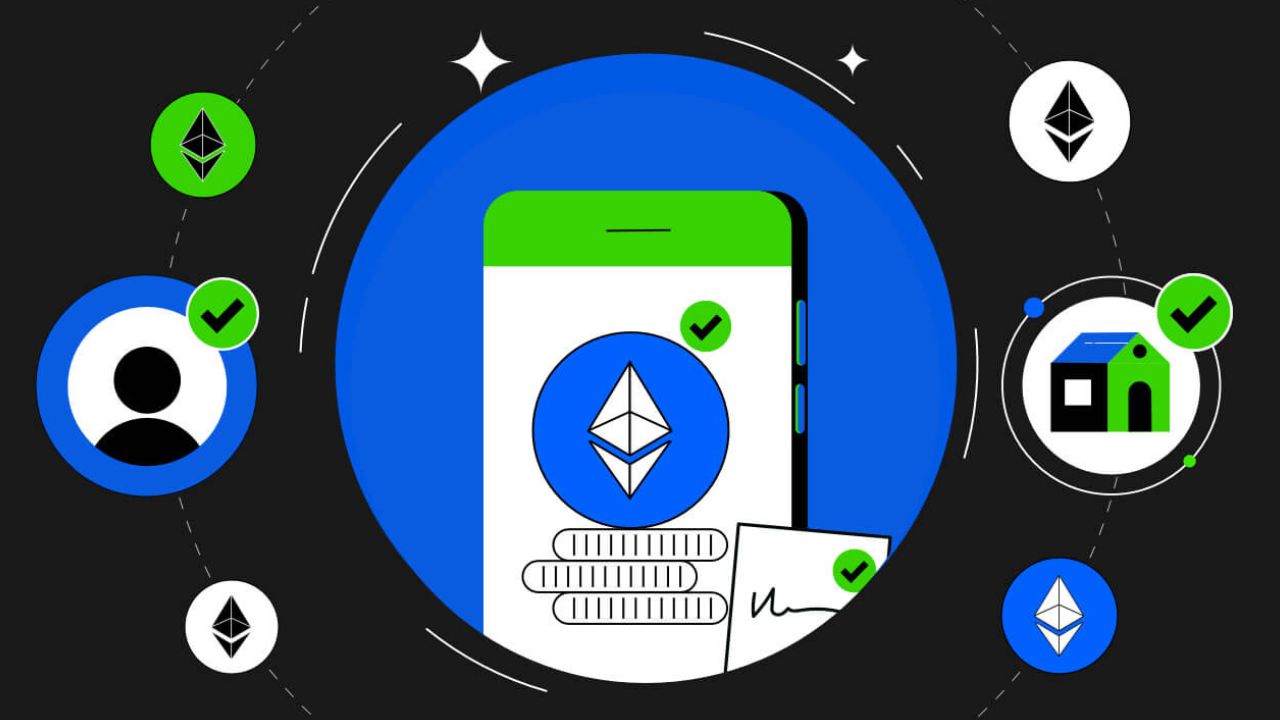Top Ways to Earn Free Ethereum
Ethereum, the second-largest cryptocurrency by market capitalization, offers various opportunities for users to earn free Ethereum tokens. Whether you are a crypto enthusiast or someone looking to dip their toes in the world of digital currencies, here are the top ways to earn free Ethereum:
-
Faucets
Ethereum faucets are websites or applications that reward users with small amounts of Ethereum for completing simple tasks or captcha challenges. While the rewards may be small, consistent faucet claims can accumulate over time.
-
Airdrops
Airdrops are another popular way to earn free Ethereum. Many blockchain projects distribute free tokens to Ethereum holders as a promotional strategy. Keeping an eye on airdrop announcements and participating in them can grant you free Ethereum tokens.
-
Mining
If you have the technical knowledge and access to powerful hardware, you can mine Ethereum. Mining involves solving complex mathematical problems to validate transactions on the Ethereum network. In return for your computational efforts, you earn Ethereum as a reward.
-
Staking
Ethereum 2.0 introduces staking as a way to earn rewards. By staking your Ethereum, you become a validator and help secure the network. In return for your contribution, you receive Ethereum rewards. Staking requires locking up a certain amount of Ethereum for a specific period.
-
Microtask platforms
Microtask platforms, such as MicroWorkers and Coinbucks, allow users to earn Ethereum by completing small online tasks, such as filling out surveys, testing websites, or participating in social media campaigns. These platforms typically pay in Ethereum or other cryptocurrencies.
-
Freelancing
If you have skills in writing, designing, coding, or any other field, you can offer your services on freelance platforms that accept payments in Ethereum. By completing tasks or projects, you earn Ethereum while showcasing your expertise.
-
Social media campaigns
Some projects and companies offer rewards in Ethereum for promoting their services or products on social media platforms. By sharing their content, referring friends, or participating in campaigns, you can earn free Ethereum as a brand advocate.
-
Referral programs
Various cryptocurrency exchanges and platforms have referral programs that reward users for referring new users. By sharing your referral link and getting others to sign up, you can earn a percentage of their trading fees or other incentives in Ethereum.
-
DApps and DeFi platforms
Decentralized applications (DApps) and decentralized finance (DeFi) platforms often offer opportunities to earn Ethereum. These platforms provide services like lending, borrowing, yield farming, or liquidity provisioning, where users can earn Ethereum by participating in these activities.
-
Gaming and NFTs
Blockchain-based games and non-fungible tokens (NFTs) have gained popularity recently. Some games reward players with Ethereum for achieving milestones or completing in-game tasks. Additionally, creating and selling NFTs on marketplaces can also earn you Ethereum.
These are just a few of the many ways to earn free Ethereum. Remember, while these methods can provide opportunities to accumulate Ethereum, there are risks involved, such as scams or high transaction fees. It is essential to do thorough research and exercise caution when participating in any earning methods.
Faucets
Ethereum faucets are websites or applications that offer users small amounts of Ethereum in exchange for completing simple tasks or captcha challenges. While the rewards from faucets may be small, they can accumulate over time and serve as a great starting point for individuals new to the world of cryptocurrencies.
Faucets typically generate revenue through advertisements, and a portion of that revenue is distributed as rewards to the users. The tasks on these platforms are usually straightforward and require minimal effort, such as clicking on ads, watching videos, or completing surveys. Each completed task earns the user a small fraction of Ethereum, known as gwei or wei.
Participating in Ethereum faucets can be an easy and accessible way to earn free Ethereum. Many websites allow users to claim rewards at regular intervals, ranging from every few minutes to several hours. Some faucets even offer additional bonuses to users who are active or refer new participants.
It’s important to note that while using faucets to earn Ethereum sounds tempting, it’s unlikely to make you rich overnight. The rewards are typically small and may not provide a substantial income. However, if you’re patient and consistent, the accumulated rewards can add up over time.
When using Ethereum faucets, it’s essential to be cautious and do research beforehand to ensure legitimacy. While there are genuine faucets that fulfill their promises, there are also fraudulent ones that aim to collect personal information or engage in other malicious activities.
To get started with Ethereum faucets, follow these steps:
- Find reputable Ethereum faucet platforms that have positive reviews and a history of payouts.
- Create an account or provide your Ethereum wallet address on the faucet website.
- Complete the required tasks, such as solving captchas or watching videos, to earn Ethereum rewards.
- Withdraw your earned Ethereum to your wallet once you reach the minimum withdrawal threshold.
- Repeat the process on multiple faucets to maximize your earnings, if desired.
While it may seem like a slow process, using Ethereum faucets can be a fun and educational way to get hands-on experience with cryptocurrencies. It allows you to familiarize yourself with the technology, learn about wallet addresses, and understand transaction processes without the risk of investing your own money.
Keep in mind that faucets should not be seen as a replacement for long-term investment strategies, but rather as a supplementary way to accumulate small amounts of Ethereum while learning more about the cryptocurrency ecosystem.
Airdrops
Airdrops are a popular way to earn free Ethereum and other cryptocurrencies. An airdrop is when a blockchain project distributes free tokens to Ethereum holders as a marketing strategy or to promote their platform. Participating in airdrops can be an excellent opportunity to accumulate free Ethereum without any financial investment.
There are various types of airdrops, including token airdrops and bounty airdrops. In token airdrops, you receive free tokens simply for holding Ethereum in your wallet during a specified snapshot date. The number of tokens you receive typically depends on the amount of Ethereum you hold.
Bounty airdrops, on the other hand, require participants to complete specific tasks or promote the project in some way to receive free tokens. These tasks may include sharing the project on social media, writing articles, creating videos, or participating in community discussions. Bounty airdrops are often designed to generate buzz and stimulate engagement around the project.
To participate in airdrops and earn free Ethereum, consider the following steps:
- Stay informed about upcoming airdrops by following crypto news websites, social media channels, and cryptocurrency forums.
- Ensure you have an Ethereum wallet that supports airdrops and has your private keys. Popular wallets such as MyEtherWallet, MetaMask, or Trust Wallet are commonly used for airdrop participation.
- Verify the legitimacy of the airdrop project by checking their website, social media accounts, and community forums for information and updates. Be cautious of scams and always do thorough research before providing any personal information.
- Follow the instructions provided by the airdrop project, such as joining their Telegram group, following their social media accounts, or completing specific tasks as required.
- When the airdrop distribution date arrives, make sure your Ethereum wallet is connected and ready to receive the airdropped tokens.
- After receiving the airdropped tokens, you can decide whether to hold them as a long-term investment or trade them on cryptocurrency exchanges for Ethereum or other digital assets.
Participating in airdrops not only allows you to accumulate free Ethereum but also introduces you to new and potentially promising blockchain projects. By joining their communities and getting involved, you may discover unique investment opportunities or learn more about the evolving cryptocurrency industry.
Remember to be cautious when participating in airdrops. While many airdrops are legitimate, there are also scams and fraudulent projects out there. Always verify the credibility of the project and never share sensitive information.
Overall, airdrops can be an exciting and rewarding way to earn free Ethereum. By keeping a close eye on the crypto community, you can take advantage of airdrop opportunities and increase your cryptocurrency holdings without spending any money.
Mining
Mining is a traditional method of earning Ethereum that involves validating transactions on the Ethereum network. Miners use powerful computer hardware and specialized software to solve complex mathematical problems, known as hashes, to verify and validate transactions.
In the early stages of Ethereum, mining was relatively easy and could be done using a regular computer or laptop. However, as Ethereum grew in popularity and complexity, mining became more resource-intensive. Today, mining Ethereum requires specialized mining equipment called ASICs (Application-Specific Integrated Circuits) or powerful graphics cards (GPUs).
The process of mining Ethereum involves the following steps:
- Obtain the necessary mining hardware, such as ASICs or GPUs. Research the market and choose the equipment that best suits your budget and mining requirements.
- Set up your mining hardware by connecting it to a power source and configuring it to communicate with the mining software.
- Download and install mining software. There are various mining software options available, such as CGMiner, Claymore, and Ethereum Miner. Choose one that is compatible with your hardware.
- Create an Ethereum wallet to receive the mined Ethereum. It’s crucial to keep your wallet address safe and secure.
- Configure the mining software by entering your mining pool details and wallet address. Mining pools are groups of miners that work together to increase their chances of successfully mining blocks and earning rewards.
- Start the mining process and let your hardware and software work to solve the mathematical problems and validate Ethereum transactions.
- Monitor your mining operation and keep track of your mining rewards.
- Consider joining a mining community or forum to stay updated on the latest mining techniques, hardware, and software improvements.
Mining Ethereum can be a profitable way to earn Ethereum, especially for those with access to cost-effective electricity and efficient mining hardware. However, it’s important to recognize that mining Ethereum has become increasingly competitive and resource-intensive. Mining profitability depends on factors such as electricity costs, hardware efficiency, network difficulty, and market price.
It’s worth noting that mining Ethereum requires a significant upfront investment in hardware and electricity expenses. Additionally, mining can generate a considerable amount of heat and noise, which may not be suitable for everyone’s living situation.
As Ethereum transitions from a Proof-of-Work (PoW) to a Proof-of-Stake (PoS) consensus mechanism, mining will become less relevant. Ethereum 2.0 aims to replace mining with staking, where users can lock up their Ethereum and participate in the network’s security in exchange for rewards.
In summary, while mining Ethereum can be a profitable venture, it requires substantial upfront investment, technical knowledge, and ongoing maintenance. If you have the necessary resources and a passion for mining, it can be a rewarding way to earn Ethereum. However, it’s important to consider the evolving landscape of Ethereum and stay informed about the transition to Ethereum 2.0 and the opportunities it brings.
Staking
Staking is a method of earning Ethereum by participating in the network’s consensus mechanism. It involves holding and locking up a certain amount of Ethereum in a cryptocurrency wallet to support the maintenance and security of the Ethereum blockchain.
In the current Ethereum Proof-of-Stake (PoS) system and the upcoming Ethereum 2.0 upgrade, staking replaces the traditional mining method used in Proof-of-Work (PoW) systems. Ethereum 2.0 aims to enhance scalability, security, and energy efficiency by transitioning from PoW to PoS.
By staking your Ethereum, you become a validator on the network, responsible for validating transactions and creating new blocks. Validators are selected to propose and attest to blocks based on the amount of Ethereum they have staked. The more Ethereum you stake, the higher the chances of being chosen as a validator.
Here’s how you can start staking Ethereum:
- Ensure you have a compatible Ethereum wallet that supports staking. Some popular options include MetaMask, Trust Wallet, or hardware wallets like Ledger or Trezor.
- Acquire the required amount of Ethereum needed to qualify for staking, typically a minimum of 32 Ethereum. You can acquire Ethereum through exchanges or other means.
- Set up your Ethereum node or use a staking service provider to facilitate the staking process. Ethereum 2.0 introduces beacon nodes and validators, which require technical knowledge to set up and maintain.
- Transfer your Ethereum to the staking wallet or address provided by the staking service or your own node.
- Enter the staking parameters, such as the amount of Ethereum you wish to stake and the desired staking duration.
- Initiate the staking process and wait for your Ethereum to be locked in the staking contract.
- Monitor your staking rewards, which can vary based on factors such as network participation, the number of validating nodes, and the total staked Ethereum.
- Continue to support the Ethereum network by keeping your staked Ethereum online and participating in the consensus process.
Staking Ethereum offers several advantages compared to traditional mining. It requires much less computational power and energy consumption, making it more environmentally friendly. Additionally, staking rewards are typically received in Ethereum, providing a continuous stream of income for validators.
Staking also allows Ethereum holders to actively participate in the network and contribute to its security and decentralization. It aligns the stakers’ interests with the success and value of the Ethereum ecosystem.
However, it’s important to consider the risks involved in staking Ethereum. In some cases, validators may be penalized or have their staked Ethereum partially or entirely slashed if they act maliciously or fail to fulfill their responsibilities as validators. It’s crucial to properly set up and maintain your staking node or choose a reliable staking service provider to mitigate these risks.
Staking Ethereum can be an attractive option for those who believe in the long-term potential of Ethereum and want to earn passive income while contributing to the network’s development. As Ethereum 2.0 continues to roll out and more features become available, staking may become an even more prominent and accessible way to earn Ethereum.
Microtask platforms
Microtask platforms provide an opportunity to earn free Ethereum by completing small, online tasks. These tasks can range from simple data entry and transcription to more specialized tasks like content moderation, image tagging, or user feedback.
These platforms connect individuals or businesses in need of small tasks to a global pool of participants who are willing to complete these tasks for a fee. Users can leverage their skills and spare time to earn Ethereum while helping clients accomplish their goals.
One of the advantages of microtask platforms is the flexibility they offer. Users can choose tasks based on their interests, availability, and skillset. They can work from anywhere and at any time, making it a convenient option for those looking to earn Ethereum alongside their regular commitments.
Here’s how you can earn Ethereum on microtask platforms:
- Sign up for reputable microtask platforms that offer Ethereum as a payment option. Some popular platforms include Amazon Mechanical Turk, Figure Eight (formerly CrowdFlower), CoinWorker, and Picoworkers.
- Create a profile and provide relevant information about your skills and qualifications. This allows clients to match you with tasks that align with your expertise.
- Browse available tasks and select the ones you want to complete. Tasks may vary in complexity, duration, and payout, so choose those that suit your preferences and abilities.
- Follow the instructions provided for each task carefully and make sure to deliver high-quality results.
- Submit your completed tasks for review by the client. In some cases, there may be a review process before you receive payment.
- Once your tasks are approved, you will receive the designated amount of Ethereum in your account.
- Continue to browse and complete tasks to earn more Ethereum. Many microtask platforms offer a variety of tasks, allowing you to diversify your earnings.
- Withdraw your earned Ethereum to your personal wallet or exchange account, depending on your preference and the platform’s payout options.
It’s important to note that while microtask platforms provide an opportunity to earn Ethereum, the payouts can vary significantly. Some tasks may offer higher rewards, while others may provide nominal amounts. The key to maximizing your earnings is to choose tasks wisely, maintain a high level of quality and efficiency, and explore platforms with a good reputation and a healthy volume of available tasks.
Additionally, keep in mind that microtask platforms rely on trust and credibility. Completing tasks accurately and meeting deadlines can lead to positive reviews, which can attract more clients and higher-paying opportunities.
Microtask platforms offer a flexible way to earn Ethereum by leveraging your skills and completing small tasks. While it may not provide substantial income on its own, it can be a valuable source of additional earnings and an opportunity to contribute to the Ethereum ecosystem.
Freelancing
Freelancing is a popular way to earn Ethereum by offering your skills and services to clients on various online platforms. As a freelancer, you have the flexibility to choose the projects you work on, set your own rates, and work with clients from all over the world.
Many freelancing platforms accept Ethereum as a payment option, allowing you to earn cryptocurrency for your work. Whether you’re a writer, designer, programmer, marketer, or have any other valuable skill, there are opportunities to find freelance work and get paid in Ethereum.
Here’s how you can get started with freelancing to earn Ethereum:
- Choose a reputable freelancing platform that accepts Ethereum payments. Some popular platforms include Upwork, Freelancer, Toptal, and CryptoGrind.
- Create a profile and showcase your skills, experience, and portfolio. It’s important to highlight your expertise and demonstrate the value you can offer to potential clients.
- Browse available projects and identify those that match your skills and interests. Pay attention to project details, requirements, and budget to ensure a good fit.
- Submit compelling proposals to clients, outlining how you can fulfill their project requirements and achieve their goals. Make sure to customize each proposal to showcase your understanding of the project and your unique capabilities.
- If your proposal is accepted, communicate with the client to clarify project details, deadlines, and deliverables. Establish a clear agreement to avoid misunderstandings.
- Complete the project professionally and deliver high-quality work. Regularly update the client on your progress and seek feedback to ensure their satisfaction.
- Invoice the client and specify that you accept Ethereum as a payment option. Provide them with your Ethereum wallet address where they can send the agreed-upon amount.
- Once the payment is received, you can use your earned Ethereum for various purposes, such as holding it as an investment, exchanging it for other cryptocurrencies, or cashing it out through a cryptocurrency exchange.
Freelancing offers the opportunity to earn Ethereum while showcasing your skills and building a reputation in your respective field. As you complete more projects and receive positive feedback, you can attract higher-paying clients and expand your network.
It’s important to note that freelancing requires self-discipline and effective time management. You are responsible for managing your workload, meeting deadlines, and maintaining a professional work ethic. Properly pricing your services and ensuring fair compensation is also crucial in freelancing.
Additionally, staying up to date with industry trends and continuously improving your skills can help you stand out and attract more clients. Engaging in professional development and expanding your knowledge base can lead to higher-paying and more challenging freelance opportunities.
Freelancing allows you to earn Ethereum while doing what you love and working on projects that interest you. With diligence and a passion for your craft, you can build a successful freelance career and enjoy the benefits of earning Ethereum in the process.
Social Media Campaigns
Social media campaigns present an opportunity to earn free Ethereum by promoting and advocating for various projects or companies on popular social media platforms. These campaigns are designed to raise awareness, drive engagement, and expand the reach of organizations within the crypto community.
Participating in social media campaigns can reward you with free Ethereum, often in the form of tokens or airdrops. By leveraging your social media presence and sharing content, you can earn rewards while supporting the growth of the crypto projects you believe in.
Here’s how you can earn Ethereum through social media campaigns:
- Be active on popular social media platforms such as Twitter, Telegram, Discord, or Reddit, where many crypto-related projects and communities thrive.
- Follow and engage with crypto projects that resonate with you. Stay updated with their latest news, announcements, and events.
- Look out for social media campaigns run by these projects. They may request specific actions such as retweeting, liking, commenting, or sharing their content.
- Participate in the campaigns by fulfilling the required actions. Ensure that you follow the campaign instructions to be eligible for the rewards.
- Engage with the community and contribute meaningful insights or discussions related to the project. Being an active and engaged member may increase your chances of receiving additional rewards.
- Keep track of the campaign’s progress and any updates provided by the project. This helps you stay informed about reward distributions and potential future campaigns.
- Once the campaign ends, you will receive the designated amount of Ethereum or tokens as specified by the project. This can be in the form of direct transfers to your wallet or distribution through airdrop mechanisms.
- You can choose to hold, trade, or convert the earned Ethereum based on your preferences and the market conditions.
Participating in social media campaigns not only allows you to earn free Ethereum but also enables you to become an active member of the cryptocurrency community. By engaging in discussions, sharing valuable insights, and promoting projects you believe in, you contribute to the growth and adoption of cryptocurrencies.
It’s important to note that while social media campaigns can be an exciting way to earn Ethereum, it’s essential to choose legitimate projects and campaigns. Be cautious of scams or projects that may ask for personal information or make unrealistic promises. Do thorough research and verify the credibility of the project and its team before engaging in any campaign.
Remember, social media campaigns are not just about earning Ethereum; they are an opportunity to learn, connect with like-minded individuals, and support projects that align with your values and interests.
Referral Programs
Referral programs are a popular way to earn free Ethereum by referring new users to various cryptocurrency exchanges, wallets, or other platforms. By leveraging your network and recommending these platforms to others, you can receive rewards in the form of Ethereum or other incentives.
Referral programs typically provide a unique referral link or code that you can share with your friends, family, or followers. When someone signs up or makes a transaction using your referral link, you are credited with the referral and become eligible for rewards.
Here’s how you can earn Ethereum through referral programs:
- Identify reputable cryptocurrency exchanges, wallets, or platforms that offer referral programs. Examples include Coinbase, Binance, and Ledger Wallet.
- Create an account on the platform and generate your unique referral link or code.
- Share your referral link with others through various channels, such as social media, email, or personal messages.
- Encourage people to sign up or make transactions using your referral link. Highlight the benefits of the platform, such as security, ease of use, or available features.
- Ensure that your referrals use your referral link when signing up or making transactions. This is necessary for the platform to track and credit you with the referral.
- Monitor your referral dashboard or account to track the number of successful referrals and the rewards you have earned.
- Depending on the platform, you may receive a percentage of the referred user’s transaction fees, a fixed amount of Ethereum, or other incentives.
- Continue promoting and sharing your referral link to maximize your earnings. Engaging with your network and providing helpful information can increase the likelihood of successful referrals.
- Withdraw or utilize the earned Ethereum according to your preferences, such as holding it as an investment or converting it into other cryptocurrencies or fiat currencies.
Participating in referral programs not only allows you to earn Ethereum but also enables you to share useful platforms and services with your network. By recommending platforms that you find valuable or trustworthy, you help others discover and benefit from the crypto ecosystem.
It’s essential to only participate in referral programs offered by reputable platforms. Be cautious of fraudulent schemes that promise unrealistic rewards or require you to share sensitive information. Do thorough research and ensure the platform has a good reputation and a proven track record.
Remember that referrals should be genuine and based on the value you see in the platform. Misleading or spamming others with referral links may harm your credibility and relationships.
Referral programs present an opportunity to earn Ethereum while expanding your network and contributing to the adoption of cryptocurrencies.
DApps and DeFi Platforms
DApps (Decentralized Applications) and DeFi (Decentralized Finance) platforms have revolutionized the way we interact with financial services and applications. These platforms offer a range of opportunities to earn Ethereum by participating in various activities, such as lending, borrowing, yield farming, or providing liquidity.
DeFi platforms, in particular, have gained significant traction, allowing users to access traditional financial services in a decentralized manner. These platforms leverage smart contracts to automate transactions and eliminate the need for intermediaries.
Here are some ways to earn Ethereum on DApps and DeFi platforms:
- Lending and borrowing: DeFi lending platforms enable users to lend their Ethereum to borrowers and earn interest on their loaned funds. Conversely, borrowers can provide collateral and borrow Ethereum or other assets.
- Yield farming: Yield farming involves providing liquidity to decentralized exchanges or liquidity pools and earning rewards in the form of Ethereum or other tokens. By supplying your Ethereum to the liquidity pool, you facilitate trading and earn a portion of the transaction fees.
- Staking in DeFi projects: Many DeFi projects offer staking options where you can lock up your Ethereum in smart contracts to support the network and earn rewards in return.
- Participating in governance: Some DeFi platforms allow token holders to participate in governance by voting on proposals and decisions. By staking their Ethereum and actively participating in governing the platform, users can earn rewards.
- Asset management: DeFi platforms also offer opportunities to earn Ethereum through asset management strategies. By allocating your Ethereum to yield-generating protocols or participating in automated portfolio strategies, you can earn returns on your investment.
Earning Ethereum on DApps and DeFi platforms requires a good understanding of the risks involved, as well as familiarity with the specific platform and its associated smart contracts. It’s important to research and assess the security, reputation, and credibility of the platforms before participating.
Utilizing DApps and engaging in DeFi activities allows you to actively participate in the Ethereum ecosystem and potentially earn rewards on your investments. However, it’s essential to be aware of the potentially volatile nature of the market and make informed decisions based on your risk tolerance and investment goals.
As the DeFi space continues to evolve, new opportunities to earn Ethereum may emerge. Stay updated with the latest developments, explore different DApps and DeFi platforms, and consider diversifying your activities to maximize your potential earnings.
Gaming and NFTs
Gaming and NFTs (Non-Fungible Tokens) have gained significant popularity in recent years, offering unique opportunities to earn Ethereum while engaging in immersive gaming experiences.
Blockchain-based games utilize NFT technology, which allows for the creation, ownership, and trading of unique digital assets on the Ethereum blockchain. These assets can range from in-game items, characters, or virtual land, to artwork, collectibles, and more.
Here are some ways to earn Ethereum through gaming and NFTs:
- Play-to-Earn: Some blockchain-based games embrace the play-to-earn model, where players can earn Ethereum or other rewards by actively participating in the game. This can include completing quests, achievements, or challenges that offer in-game currencies or NFTs that can be monetized.
- Create and sell NFTs: If you possess artistic skills, you can create unique digital artwork, game assets, or collectibles and mint them as NFTs on Ethereum-based NFT marketplaces. Once sold, you earn Ethereum through the sales of your NFTs.
- Trade NFTs: As the NFT market continues to grow, there are opportunities to buy low and sell high, similar to traditional trading. By identifying valuable NFTs or investing in promising projects, you can profit from the price appreciation of these assets.
- Rent virtual land: Some blockchain-based virtual worlds allow users to purchase or rent virtual land using Ethereum. By owning or renting virtual land, users can develop and monetize their virtual properties, earning Ethereum by leasing or selling their creations.
Earning Ethereum through gaming and NFTs offers a unique convergence of entertainment, creativity, and investment. It allows players and creators to monetize their skills and assets within the digital realm.
It’s important to have a good understanding of the gaming or NFT project you’re participating in, as well as the associated costs and risks. Game economies and NFT markets can fluctuate, so it’s crucial to do thorough research and make informed decisions regarding your investments and participation.
Engaging in gaming and NFT activities can be an exciting way to earn Ethereum, especially for individuals who are passionate about gaming or have artistic talents. By immersing yourself in blockchain-based games and exploring the realm of NFTs, you can potentially turn your hobbies into profitable endeavors within the Ethereum ecosystem.

























